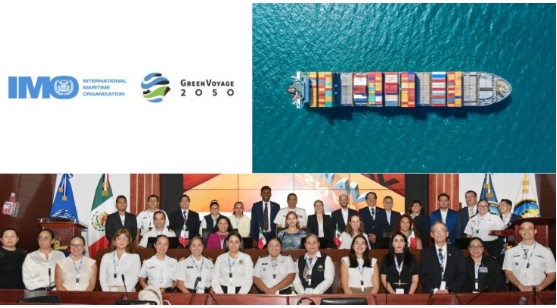
The workshop convened representatives from SEMAR, the Ministry of Environment (SEMARNAT), Ministry of Energy (SENER), Ministry of Foreign Affairs (SRE), national ports (ASIPONAs), academia, industry, and civil society. Discussions focused on reducing greenhouse gas (GHG) emissions in shipping and port operations through cleaner fuels, improved port infrastructure, enhanced regulations, and investments in innovation and workforce training. The integration of port decarbonization with national climate goals and international green shipping corridor initiatives was also emphasized.
Javier Mendoza Rosales, Deputy Director General for Liaison, Implementation, Regulations, Marine Accidents and Casualties at UNICAPAM, stated: “Mexico has a real opportunity to take advantage of global momentum on maritime decarbonization. Through this collaboration with the IMO, we can strengthen our regulatory frameworks and build a forward-looking maritime sector that supports both economic growth and environmental sustainability.” Diana Elena Portilla, Executive Director of Maritime-Port Strategic Planning, added: “Our ports are pillars of national economic development and their transformation is essential to respond to today’s challenges. Through the National Action Plan process, it is possible to align port operations with the country’s energy and climate priorities.”
Subaskar Sitsabeshan, Programme Officer at IMO’s GreenVoyage2050, noted: “Mexico’s extensive coastline and network of over 100 ports offer a unique opportunity to drive sustainable growth in the maritime sector. With strong national ambition and cross-sector engagement, GreenVoyage2050 is pleased to collaborate on this important initiative in Mexico.” The workshop highlighted the potential for low- and zero-carbon solutions like hydrogen, ammonia, and electrification, emphasizing financing, pilot projects, and regional cooperation.
The next phase involves a baseline assessment of GHG emissions from Mexico’s maritime sector to shape the NAP. The GreenVoyage2050 Program supports developing countries in aligning with the 2023 IMO GHG Strategy. In February 2025, Mexico joined 13 countries at IMO climate talks in London to support a global carbon levy on shipping, reinforcing its commitment to sustainable maritime practices without impacting trade or consumption dynamics.